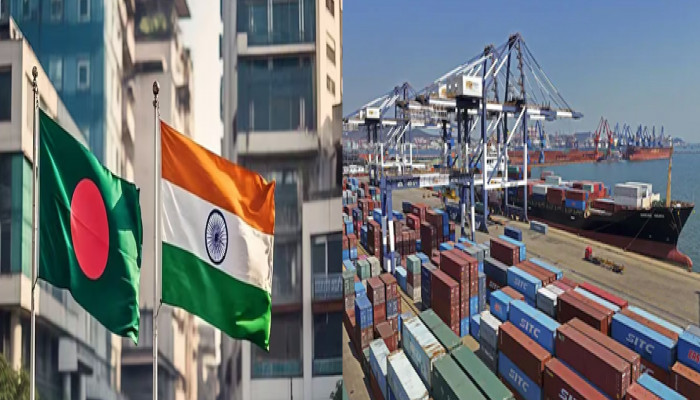India halts trans-shipment to Bangladesh following Yunus' 'landlocked' remark on Northeast
- In Reports
- 04:39 PM, Apr 09, 2025
- Myind Staff
The Indian government has withdrawn a key transshipment facility that allowed Bangladesh to send its export goods to other countries using India’s Land Customs Stations (LCSs), ports, and airports.
This decision came shortly after Muhammad Yunus, the Chief Adviser of Bangladesh’s interim government, suggested that China should expand its economic presence into India’s strategically important Northeast region, which he described as "landlocked." The facility, launched in June 2020, made it easier for Bangladesh to trade with countries like Nepal, Bhutan, and Myanmar. On April 8, the Central Board of Indirect Taxes and Customs (CBIC) published a circular formalising the decision. "It has been decided to rescind... circular...dated June 29, 2020, as amended with immediate effect. Cargo already entered into India may be allowed to exit the Indian territory as per the procedure given in that circular," the notification stated.
Trade experts believe that taking back this facility will help many Indian export sectors like textiles, footwear, and gems and jewellery. These are areas where Bangladesh is a strong competitor, especially in clothing. During a recent four-day trip to China, Muhammad Yunus characterised Bangladesh as the region's main maritime gateway and called the Northeast of India "landlocked" with "no way to reach out to the ocean."
Beijing should expand its economic presence in Bangladesh, the Chief Adviser said, describing Dhaka as the "only guardian of the ocean" in South Asia. "The seven states of India, the eastern part of India, are called the Seven Sisters. They are a landlocked region of India. They have no way to reach out to the ocean. So this opens up a huge possibility. This could be an extension of the Chinese economy," Yunus had remarked at a high-level roundtable discussion in Beijing.
Responding to Yunus's remarks, External Affairs Minister (EAM) S. Jaishankar criticised Bangladesh, saying that India sees cooperation as a complete approach and not something where you can pick and choose what suits you. "We, after all, have the longest coastline in the Bay of Bengal, of almost 6,500 km. India shares borders not only with the five BIMSTEC members, and connects most of them, but also provides much of the interface between the Indian sub-continent and ASEAN. Our North-Eastern region in particular is emerging as a connectivity hub for the BIMSTEC, with a myriad network of roads, railways, waterways, grids and pipelines," the External Affairs Minister said.







Comments